FUNDAMENTAL PRINCIPLES OF OLYMPISM
Modern Olympism was conceived by Pierre de Coubertin, on whose initiative the International Athletic Congress of Paris was held in June 1894. The International Olympic Committee (IOC) constituted itself on 23 June 1894.
The Olympic Charter is the codification of the Fundamental Principles, Rules and Bye-laws adopted by the IOC. It governs the organisation and operation of the Olympic Movement and stipulates the conditions for the celebration of the Olympic Games. The following are Fundamental Principles of the Olympic Movement, as stated in the Olympic Charter:
- Olympism is a philosophy of life, exalting and combining in a balanced whole the qualities of body, will and mind.
- Blending sport with culture and education, Olympism seeks to create a way of life ba sed on the joy found in effort, the educational value of good example and respect for universal fundamental ethical principles.
- The goal of Olympism is to place everywhere sport at the service of the harmonious development of man, with a view to encouraging the establishment of a peaceful society concerned with the preservation of human dignity.
- The Olympic Movement is the concerted, organised, universal permanent action, carried out under the supreme l authority of the IOC, or all individuals and entities who are inspired by the values of Olympism. It covers the five l continents. It reaches its peak with the bringing together of the world’s athletes at the great sport festival, the l Olympic Games. Its symbol is five interlaced rings.
- The practise of sport is a human right. Every individ ual must have the possibility of practising sport, without discrimination of any kind and in the Olympic spirit, which requires mutual understanding with a spirit of friendship, solidarity and fair play. The organisation, administration and management of sport must be controlled by independent sports organisations.
- Any form of discrimination with regard to a country or person on grounds of race , religion, politics, gender or otherwise in incompatible with belonging to the Olympic Movement.
- Belonging to the Olympic Movement requires compliance with the Olympic Charter and recognition by the IOC.
Introduction to the Olympic Charter
The Olympic Charter (OC) is the codification of the Fundamental Principles of Olympism, Rules and Bye-Laws adopted by the International Olympic Committee (IOC). It governs the organisation, action and operation of the Olympic Movement and sets forth the conditions for the celebration of the Olympic Games. In essence, the Olympic Charter serves three
main purposes:
a) The Olympic Charter, as a basic instrument of a constitutional nature, sets forth and recalls the Fundamental Principles and essential values of Olympism.
b) The Olympic Charter also serves as statutes for the International Olympic Committee.
c) In addition, the Olympic Charter defines the main reciprocal rights and obligations of the three main constituents of the Olympic Movement, namely the International Olympic Committee, the International Federations and the National Olympic Committees, as well as the Organising Committees for the Olympic Games, all of which are required to comply with the Olympic Charter.
Top 10 Disgraced Olympic Athletes
#10 Cian O’Conner – 2004 Olympics
#9 Paavo Nurmi – 1932 Olympics
#8 Jim Thorpe – 1912 Olympics
#7 Andreea Raducan – 2000 Olympics
Romanian Andreea Raducan became the first gymnast to be stripped of a medal after testing positive for psuedoephedrine (a banned stimulant). Raducan took nurofen, a common over-the-counter medicine to help treat fever. The Romanian team doctor who gave her the medication was expelled from the games and suspended for four years. The gold medal was advanced, but she was allowed to keep her gold from the team competition and a silver for vault.
#6 Ara Abrahamian – 2008 Olympics
Swedish wrestler Ara Abrahamian placed his bronze medal on the floor immediately after it was placed around his neck in protest for his loss in the semifinals. He was subsequently disqualified by the International Olympic Committee.
#5 Dong Fangxiao – 2000 Olympics
#4 Angel Matos – 2008 Olympics
#3 Marion Jones – 2000 Olympics
#2 Women’s doubles badminton teams – 2012 Olympics
#1 Boris Onischenko – 1976 Olympics
Soviet pentathlete, Boris Onischenko, was found to have used an épée (dueling sword) which had a modified pommel, in the fencing portion of the pentathlon event. When activated this moderfication would cause the electronic scoring system to register a hit no matter if the épée had connected or not. As a result, he and the entire male Soviet pentathlon team were disqualified. The British team who exposed Onischenko went on to win the gold medal.
July 25th, 2012 - Nine athletes banned for doping offenses
A total of nine athletes, including Olympic bronze medalist Nataliya Tobias, have tested positive for "sophisticated doping" offenses, the International Association of Athletics Federations (IAAF) has confirmed.
Six of those athletes were caught using a new "biological passport" method, which builds up a profile of each individual over a prolonged period of time.The remaining three, including Tobias who came third in the women's 1500 meters in Beijing four years ago, were suspended after further analysis of samples they gave at the World Championships in Daegu last year.
"Today's announcements underline the IAAF's continued and unwavering campaign against doping in athletics," IAAF President Lamine Diack said in a statement on their official website.
"They demonstrate the IAAF's commitment to use advanced methods to detect doping and to enforce increased sanctions when justified.
"We will not stint in our resolve to do everything in our power to eradicate cheating."
London 2012 Olympics: Albanian weightlifter banned for failing drugs test
Albanian athlete Hysen Pulaku, 19, who was scheduled to compete in the men's 77kg weightlifting contest, has tested positive for an anabolic steroid. The decision was not contested by Pulaku, who tested positive on 23 July for Stanozolol and is the first athlete to be thrown out London 2012
Kicked out for a racist tweet: Greek triple jumper is banned from the Games after her African 'joke'
Two athletes miss Games after failed drugs tests
Greek high jumper Dimitrios Chondrokoukis has pulled out of London 2012 after testing positive for the banned substance stanozolol.
The 2012 world indoor champion was one of Greece's best hopes of a medal. Chondrokoukis, 24, jumped a personal best of 2.33 metres when he took gold in Istanbul in March, beating Britain's Robbie Grabarz, who finished sixth.
Hungarian discus thrower Zoltan Kovago will also miss the Games after being handed a two-year doping ban.
London 2012: Selsouli to miss Games after failed drugs test
Moroccan 1500m runner Mariem Alaoui Selsouli has failed a drugs test and will miss the London Olympics.
Selsouli, who won silver at this year's World Indoor Championships, tested positive for a banned diuretic in a sample taken in Paris on 6 July.Olympics 400m: Colombian Diego Palomeque fails drugs test
Colombian 400m runner Diego Palomeque has been formally excluded from the Olympics after a failed drugs test.
Palomeque, 18, did not take part in the men's heats after a urine sample tested positive for testosterone.Olympic cycling: Russia's Victoria Baranova fails drugs test
Russian track cyclist Victoria Baranova has been expelled from the London Olympics after testing positive for the male hormone testosterone.
The 22-year-old was due to compete in Friday's women's keirin competition but was sent home earlier this week. Baranova failed an International Olympic Committee (IOC) pre-Games drugs test in Belarus on 24 July. “It is frustrating. Our sport has really been dragged through the mud” BBC pundit Mark Cavendish. "She has admitted to taking a banned substance," the International Cycling Union (UCI) confirmed.
That Johnson bloke doesn't even get a mention. If athletes are banned, why not sponsors. They bring the games into disrepute as well
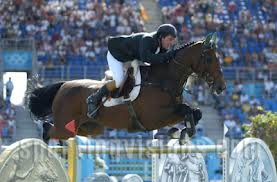
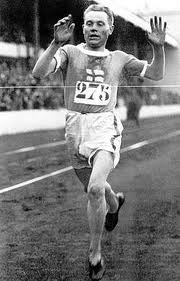
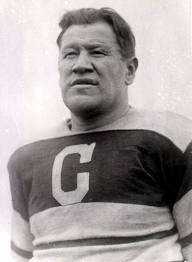
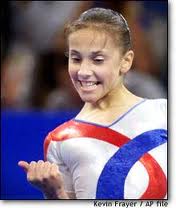
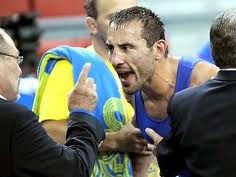
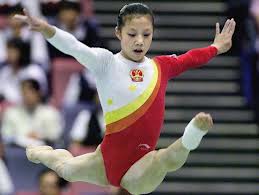
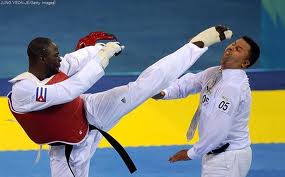
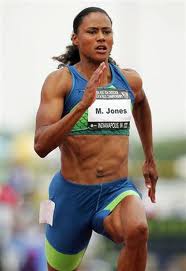

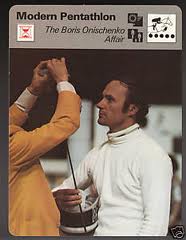
No comments:
Post a Comment